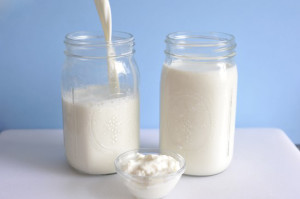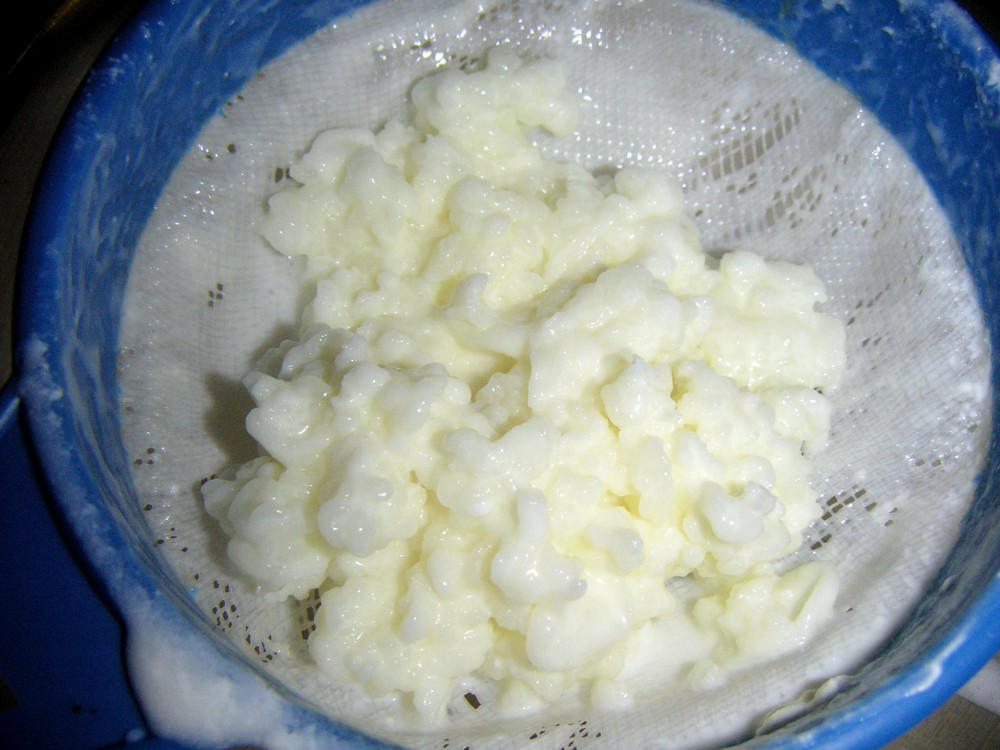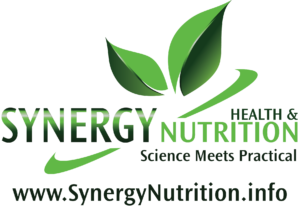“You put sugar in your kefir, right?” (I’m sorry—did I hear that right????) “Well I was over buying coconut milk kefir and she said you put sugar in yours, that’s why her’s is better.”
 There I was, enjoying the company of the great clients who turned out for the first ever Fermentapalooza over at the Alaska Health Improvement Center, and suddenly there was this “You put sugar in your kefir?” question / statement.
There I was, enjoying the company of the great clients who turned out for the first ever Fermentapalooza over at the Alaska Health Improvement Center, and suddenly there was this “You put sugar in your kefir?” question / statement.
I am the mother who helps an entire football team develop iron-man stamina by finding alternates to sugary Gatorade, who applauds schools like Spring Hill in Anchorage for having sugar free policies, whose son’s baseball coach lovingly teases (but secretly listens) to my “sugar is the bane of all child behavior” beliefs…
I am the nutrition and lifestyle coach who heals with whole foods. I’ve helped hundreds of people leave their sugar addiction and come out the other side healthier, happier and with energy to burn. If I didn’t get results, no one would call me. If I added sugar to anything (except deserts—and only certain sugars and extremely rarely) then I would never get results.
I did my post-graduate work in biochemistry, molecular biology and cell biology. Heck, in the old days I’d canoe the Hudson river in NY in search of microbes that do this or that special thing… but enough about me. I was shocked.
Added sugar is underneath most health problems. So why would it be in Kefir?
The problem is one of words. Every word has many different meanings. Joe says something. Mary gets a completely different and unintended meaning. Joe intended “definition #1.” Mary doesn’t know definition #1 and uses definition #5—oh, not only that, but definition #5 holds negative connotations for Mary where poor Joe’s intent was one of endearment. Joe gets the proverbial cold shoulder and has no idea what he did… This actually happens all the time.
Do you need to have sugar for Kefir probiotics?
The answer depends on your definition of sugar and whether you are talking about added sugars or those found naturally in the starting ingredients.
Methinks we can sort this out by defining fermentation. OK?
From my biochemistry textbook:
“Fermentation is the conversion of 6-carbon sugars into energy in the absence of oxygen (anaerobic).”
Lacto-fermentation produces lactates (such as lactic acid). By design, your muscles do this to provide short burst high intensity energy. Important to our digestion, millions of microbes living in our gut “eat” our food (digest and absorb) and then give us vital nutrients.
“It’s the predominance of the beneficial bacteria referred to as the probiotic bacteria, such as bifidobacteria and lactic acid bacteria, that ensure good health and prevent diseases of the gut and other organs in the body.” –A. Venketeshwer Rao, MSc, PhD, professor emeritus in the department of nutritional sciences at the University of Toronto
Alchohol fermentation produces alcohol. Yeasts are particularly known for their remarkable ability to create alcohol from sugar. But your gut is not suppose to make beer out of your food.
Unfortunately, when Candida albicans, parasites, and other pathogens take over, you get any number of today’s chronic health problems. Beyond bloating, diverticulitis or intestinal bowel disease, gut imbalance is a deeper cause of acne, aging, alzheimer’s, anxiety, arthritis, bipolar-disorder, bronchitis, cancer, cardiovascular-health, depression, diabetes … and that’s just the beginning of the symptom alphabet. Dietary habits quickly shift the microbes in your gut from lacto-fermenting strains to unwanted ones: you feel this in a myriad of ways.
The new health organ—your gut microbiome
Recent research absolutely blows away our current natural health concept of “treat the cause” by revealing a new body organ—and its powerful relationship with how our brains and immune systems work. My clients and I look beyond where the symptom is located: eczema—skin (or maybe liver), allergies—blame the immune system… Many research papers link skin eczema, fatigue, fuzzy thinking, body aches, allergies, chemical sensitivities and frequent infections with having the wrong microbes in your gut. Health includes precise steps to restore and heal this key organ.
 The probiotics—the microbes themselves—provide an impressive list of health benefits:
The probiotics—the microbes themselves—provide an impressive list of health benefits:
- calcium and other mineral absorption
- correct bowel pH (needed for nutrient absorption)
- alleviate symptoms of lactose intolerance
- alleviate symptoms of food and skin allergies in children
- reduce recurrent ear and bladder infections
- reduce recurrance and/or duration of bacterial vaginosis
- improve breath (caused by having the wrong gut microbes).
- immune system effectiveness
- hypertension
- reduction of colorectal cancer risk and lowering risk of colon cancer
- in animal studies, probiotics “turn off” signals that can lead to colon polyps and cancer
- inflammatory bowel disorders (Crohn’s disease and ulcerative colitis)
- increased production of short-chain fatty acids (SCFA) that nourish the colon walls and are beneficial to Crohn’s disease, ulcerative colitis
- decrease the potentially dangerous bacteria, parasites, and yeast in your colon—the ones that dump toxic waste into you
- aging, appetite and weight loss—very early research shows benefits
- and yes, eliminate bloating and embarrassing gas.
Your food creates your gut—prebiotics and the sugar connection
The microbes in your stomach and intestines need to eat. Fortunately the good microbes don’t like the same things that the bad microbes do. We provide a moist, warm, oxygen-free environment for all of them—and food. When we eat properly, we foster good bacteria by feeding them and we “starve” the yeast, parasites and other pathogens that wreak havoc on our health. Not only that, but we don’t have to make all the enzymes needed to digest our food; our “good” microbial friends make them for us—they digest the food and give us “done-for-you” absorbable and bioavailable nutrients.
The foods preferred by good microbes are referred to as prebiotics
From artichokes to zucchini, eating green vegetables provides the soft fibers that help them thrive (as opposed to hard seed bran or starchy fibers).
The fact is that these soft fibers are chains of sugars. The probiotic bacteria make enzymes that split these chains into individual sugars that are ultimately converted into nutrients for us and energy for the bacteria.
Back to kefir probiotics: a well-known example
 Lactose is a milk sugar that is actually two joined simple sugars—a very short chain and not long enough to be called a fiber. The enzyme needed to split (or digest) lactose is called lactase. Most of us make lactase but some people don’t make enough and are “lactose intolerant.” The reason why lactose intolerant folks find some relief with kefir probiotics is that the beneficial bacteria, Lactobacillus and Bifidobacteria produce lactase. They assist us in splitting lactose into digestible sugars. But we definitely don’t need dairy to make kefir.
Lactose is a milk sugar that is actually two joined simple sugars—a very short chain and not long enough to be called a fiber. The enzyme needed to split (or digest) lactose is called lactase. Most of us make lactase but some people don’t make enough and are “lactose intolerant.” The reason why lactose intolerant folks find some relief with kefir probiotics is that the beneficial bacteria, Lactobacillus and Bifidobacteria produce lactase. They assist us in splitting lactose into digestible sugars. But we definitely don’t need dairy to make kefir.
On the other hand, the “bad” pathogens prefer simple sugars and starchy filler foods that are commonly found in processed foods. Small intestinal bacterial overgrowth (SIBO), parasites and yeast love simple sugars, alcohol and refined carbohydrates. Certain strains feed off of refined carbohydrates and break them down into short-chain fatty acids, creating gas and causing bloating. Other strains bacteria break down bile salts before your body has a chance to use them. Bile salts are crucial for the breakdown of fats; a lack of bile causes fat malnutrition and diarrhea. Finally, a third type of bacteria produces toxins that damage the lining of the small intestine preventing nutrient absorption and causing leaky gut.
So is their sugar in my coconut milk kefir?
Yes and no. There is no added sugar. If you are trying to repopulate your intestine you must avoid added sugar (and starchy foods) at all costs. Most commercial kefir and all kombucha is a bad idea if this is your goal—both are loaded with added sugars (among other problems).
…and you may want to avoid concentrated prebiotics (bacteria food)
Even the prebiotic sugar chains that give coconut milk its naturally sweet taste are too much for some people and result in brain fog, gas, bloating or other symptoms. The Standard American Diet-caused unhealthy microbes will ferment these sugars too—except they produce alcohol and toxic waste. People with Candida infections have to be particularly careful.
If you just toss in a bunch of prebiotics without first beginning to rebalance the microbe population, your existing and unwanted microbes will have a party—at your expense.
Providing food alone is not the right first step. The right bacteria (and yeast and…) must first be re-established.
You must restore the beneficial bacteria. Here’s how I do it with my clients.
There are 1000 to 1150 prevalent bacterial species, with each of us hosting at least 160 species. This diversity helps make the different enzymes that will digest the variety of food you eat.
Restore balance to the microbiome organ using precise, guided steps:
- Remove rapidly fermentable short-chain carbohydrates. Namely, fructose (monosaccharide), sucrose, lactose (disaccharides), fructans and galactans (oligosaccharides) and polyols, such as sorbitol, maltitol, xylitol and mannitol (so-called sugar alcohols).
- Consider removing starchy foods especially potatoes.
- Eliminate inflaming and irritating foods: soy, wheat / cereal grains, corn, modern dairy and everything processed and packaged with additives. For many people, meats can be difficult to digest until the gut is more healthy.
- Use broth soups, healing fats and cooked vegetables: heal your gut.
- Add in a diverse selection of cultured food to reinocculate your now-healthier gut.
- Gradually add more complicated foods but go easy, add one at a time and monitor how you feel.
Interestingly, I wrote this vendor who took issue with my statement that “for lacto fermentation to occur there has to be some sugar.” She wrote: “Actually, we have figured out how to ferment the pure coconut fat without sugar or dairy... We use no sugar and we do not share how we do this.”
Can you “ferment” 100% coconut fat? Back in my early research days of canoeing the Hudson river, we were looking for bacteria that would digest fat, oil, clean up waste… they do exist and most are “methanogens” meaning they take “food” and convert it into methane gas. Some of the 50 described species (so far) live in our colon where they “eat” fat and produce flatulence. Technically we don’t call this fermentation and I wouldn’t personally recommend anything that adds these critters to my gut or anyone else’s.
I truly think it comes back to definitions. I’m sure there is no added sugar in that kefir. I’m also sure the coconut starter is a great prebiotic complete with it’s own soft fiber sugar chains—naturally, just like mine.
[contact-form-7 id=”1851″ title=”Question form blog page”]
Sources:
Panda S, Guarner F, & Manichanh C.Structure And Functions Of The Gut Microbiome. Endocr Metab Immune Disord Drug Targets. 2014 Jul 14. [Epub ahead of print]
Food Chemistry, 3rd edition , edited by Owen R. Fennema, Marcel Dekker, Inc., New York, NYISBN0-8247-9691-8 provides a schematic diagram of the formation of volatile fermentation products.
Handbook of Fermented Functional Foods, Functional Foods and Nutraceuticals Series, Edited by Edward R. Farnworth, PhD,CRCPress;ISBN0-8493-1372-4.
Marcio Nucci M & Anaissie E, Revisting the source of candidemia: Skin or Gut? Clin Infect Diseas 2001 Vol. 33(12): 1959-1967 http://cid.oxfordjournals.org/content/33/12/1959.full
Salonen A & de Vos W Impact of Diet on Human Intestinal Microbiota and Health Annual Review of Food Science and Technology 2014 Vol. 5: 239-262.
Scholz-Ahrens KE & Schrezenmeir J Inulin and oligofructose and mineral metabolism: the evidence from animal trials 2007 J Nutr. 137(11 Suppl): 2513S–2523S.
Lomax AR & Calder PC Prebiotics, immune function, infection and inflammation: a review of the evidence.2009 Br J Nutr. 101 (5): 633–658.
Geier MS, Butler RN, Howarth GS Probiotics, prebiotics and synbiotics: a role in chemoprevention for colorectal cancer? 2006 Cancer Biol Ther. 5(10): 1265–1269.
Hedin C, Whelan K, Lindsay JO Evidence for the use of probiotics and prebiotics in inflammatory bowel disease: a review of clinical trials. 2007 Proc Nutr Soc.66(3): 307–315.
Munjal U, Glei M, Pool-Zobel BL, Scharlau D Fermentation products of inulin-type fructans reduce proliferation and induce apoptosis in human colon tumour cells of different stages of carcinogenesis. 2009 Br J Nutr. 102(5): 663–671.
Mustapha A, Jiang T, Savaiano DA. Improvement of lactose digestion by humans following ingestion of unfermented acidophilus milk: influence of bile sensitivity, lactose transport, and acid tolerance of Lactobacillus acidophilus. 1997J Dairy Sci.80:1537-45.







